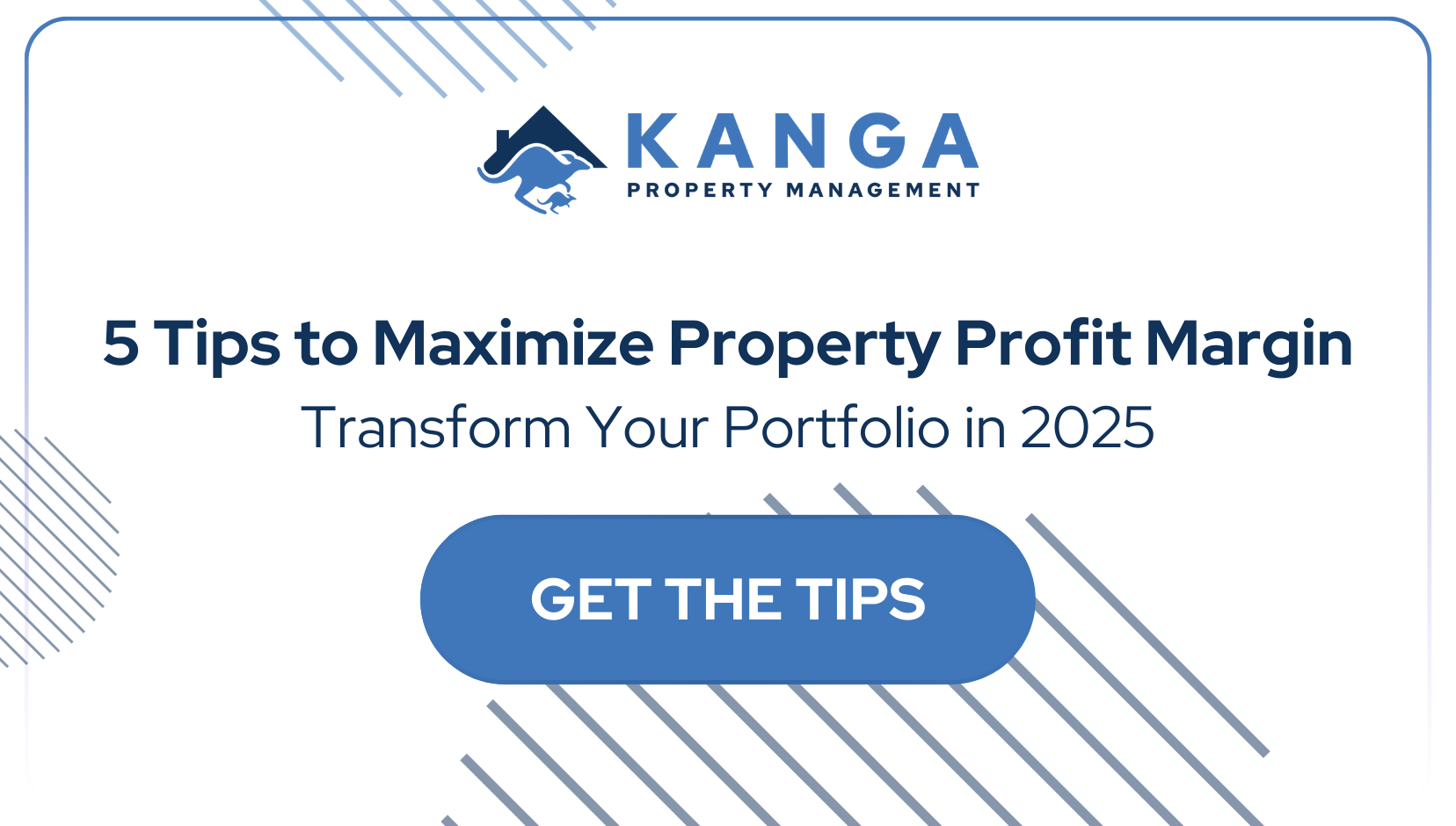
Reduce Maintenance Costs for Rental Portfolios: Effective Strategies for Landlords
Reducing maintenance costs for your rental portfolio is crucial for maximizing your profits. Through ongoing inspections and using high-quality materials, you can significantly reduce unexpected expenses.
Regular inspection helps catch potential issues early, preventing costly repairs later.
Another strategy is to handle maintenance requests promptly. This not only prolongs the life of your property but also improves tenant satisfaction.
Happy tenants are more likely to renew leases, reducing turnover and vacancy rates.
Investing in preventive maintenance and achieving efficient responses to requests are key. By maintaining your properties well and optimizing expenses, you can ensure better tenant relationships and long-term financial benefits.
Key Takeways
- Regular inspections prevent costly repairs.
- Prompt maintenance requests improve tenant satisfaction.
- Efficient maintenance reduces long-term expenses.
Understanding Maintenance in Rental Properties
Proper maintenance in rental properties is crucial for preserving value and improving tenant satisfaction. Addressing key areas such as the role of property managers, common expenses, and how age and size of properties affect maintenance is important for any landlord or investor.
Role of a Property Manager
A property manager plays a pivotal role in overseeing rental property maintenance. They ensure that routine checks and necessary repairs are carried out promptly.
Having a dedicated manager can save you time and potentially reduce costs by catching issues early. They coordinate maintenance tasks, manage vendor relationships, and handle tenant requests.
With a manager, you gain access to a network of trusted maintenance professionals. This can lead to better service quality and negotiated rates for services like HVAC system maintenance and repairs.
An experienced manager understands how to prioritize repairs and upgrades that align with your property’s value and tenant needs.
Common Maintenance Expenses
Maintenance expenses for rental properties can vary, but several common costs are typically involved.
Plumbing issues and HVAC system repairs are among the most frequent and urgent tasks. Regular checks on these systems can prevent larger problems later.
Other expenses include general wear and tear, appliance repairs, and landscaping. Allocating a budget for these will help you manage your finances better.
Routine cleaning and painting also contribute to ongoing costs, ensuring the property remains appealing to potential renters.
Planning for seasonal maintenance is essential, too. For instance, gutter cleaning in the fall and ensuring heating systems work well before winter are practical tasks.
You can estimate costs using rules of thumb like the Square Foot Formula, which suggests budgeting $1 per square foot annually.
The Impact of Property Age and Size on Maintenance
The age and size of a property significantly affect maintenance needs and expenses.
Older properties often need more frequent upkeep due to outdated systems and materials. Older plumbing and wiring may require regular checks and replacements, increasing expenses.
Larger properties naturally involve more maintenance due to their scale. More square footage means more area to manage, clean, and repair. Additionally, larger properties might have more extensive landscaping needs and exterior maintenance.
Newer properties might have less immediate maintenance demand, but specific systems like HVAC still need regular service. Keeping track of the age of systems and parts helps in planning or upgrading efficiently.
Addressing these aspects ensures properties remain in optimal condition, preserving their rental potential.
Preventive Maintenance Strategies
Preventive maintenance is crucial for keeping rental properties in good shape and cutting costs. Key strategies include regular inspections to spot issues early and creating a structured plan to handle maintenance tasks efficiently.
Routine Inspections and Maintenance
Conducting property inspections regularly is essential. Routine inspections help identify potential problems such as leaks, wear and tear of appliances, or structural issues.
Addressing these early can prevent costly repairs later.
Seasonal maintenance plays a vital role. For instance, before winter, check heating systems, insulate pipes, and clear gutters. In spring, inspect roofs, air conditioning units, and landscaping. A checklist for each season ensures nothing is missed and keeps the property in prime condition.
Engage tenants by encouraging them to report issues promptly. Quick responses and effective communication build trust and can significantly reduce minor problems from escalating.
Implementing a Preventive Maintenance Plan
Having a scheduled maintenance plan optimizes your maintenance efforts. Create a calendar that details when specific tasks should be performed, accounting for both regular and seasonal checks.
This organized approach ensures consistency and reliability in handling upkeep needs.
Documenting all maintenance activities is important. Keep records of repairs, dates, and costs to track patterns or recurring issues. This data helps in planning future maintenance budgets and strategies.
Utilizing technology, such as property management software, can streamline this process. These tools allow easy scheduling and tracking of maintenance tasks, sending reminders, and managing service requests efficiently.
They can vastly improve your preventive maintenance efforts and optimize resource allocation.
Cost-Effective Management of Maintenance Requests
Managing maintenance requests efficiently can greatly reduce costs and improve tenant satisfaction. This approach focuses on quick responses to emergencies and leveraging technology for streamlined processes.
Emergency Repairs and Immediate Response
Emergency maintenance is crucial for tenant safety and property value. Delaying emergency repairs like broken pipes or faulty electrical systems can lead to further damage and expensive fixes.
You should set up a robust system for immediate response to emergencies to avoid costly repairs later.
A maintenance hotline is essential for tenants to report urgent issues around the clock. This hotline should connect directly with your maintenance team or contractors ready for immediate deployment.
Quick response minimizes damage and maintains tenant trust. Consider having agreements with local repair companies to ensure availability for urgent issues.
Leveraging Property Management Software
Property management software can greatly simplify handling maintenance requests. This software helps in organizing and prioritizing work orders, keeping track of repair history, and ensuring nothing is overlooked.
With such software, you can automate task tracking and communication with tenants and maintenance staff. This reduces administrative overhead and helps in quickly addressing both regular and emergency repairs.
It also offers insights into frequent issues, guiding proactive maintenance strategies.
Some software options offer mobile access, allowing real-time updates and notifications. This ensures that both you and your maintenance team remain informed about the status of requests and repairs.
By leveraging technology, you can achieve more efficient operations and cost savings.
Optimizing Operational Expenses
To reduce costs in rental properties, consider adopting negotiation strategies with contractors and find effective ways to cut down on utility and landscaping costs. These steps can help eliminate unnecessary expenses and improve your portfolio’s financial performance.
Negotiating with Reliable Contractors
Working with reliable contractors can help you keep maintenance costs under control. Building strong relationships with them may allow you to negotiate better rates for long-term services.
This can include a fixed rate for regular services, reducing the overall cost per visit.
Having multiple contractors to choose from can improve your bargaining position. Ensure you do a thorough background check and gather references to find trustworthy contractors.
Set clear expectations in contracts regarding timelines, quality standards, and payment terms.
Regular communication and performance reviews with contractors can help prevent disputes and ensure they meet your expectations. This can also highlight areas where they might offer additional cost-saving solutions.
Reducing Utility and Landscaping Costs
Utility costs in rental properties can be a major expense. Implement energy-efficient solutions like LED lighting and smart thermostats. Encourage tenants to adopt energy-saving habits, which can lower utility bills.
Invest in low-maintenance landscaping to save on both water and labor costs. Drought-resistant plants and automated irrigation systems can reduce the need for frequent watering and upkeep.
Choosing native plants can further decrease costs as they tend to require less care and are more adaptable to local conditions.
Regularly review utility bills for any inconsistencies or spikes. This allows you to address issues quickly and prevent ongoing wastage, keeping expenses low.
Enhancing Tenant Relationships and Retention
Building strong relationships with tenants and maintaining their satisfaction is key to reducing tenant turnover. Effective strategies include prompt communication, offering incentives, and keeping properties well-maintained.
Importance of Tenant Satisfaction
Tenant satisfaction is crucial for long-term success in property management. High satisfaction levels can lead to prolonged leases and less frequent vacancies. Happy tenants are more likely to become quality tenants, causing fewer issues and fulfilling rental obligations reliably.
Ensuring resident satisfaction involves understanding and addressing their needs. This includes maintaining properties in excellent condition and handling repairs swiftly.
Also, offering improved amenities can increase tenant contentment, leading to higher retention rates.
Strategies for Low Tenant Turnover
Several strategies can help reduce tenant turnover, providing stability to your rental portfolio. Quick response to maintenance requests is a critical strategy—prompt repairs can keep tenants satisfied and reduce turnover.
Offering lease renewal incentives, like rent discounts or enhanced services, shows your commitment to tenant satisfaction.
Consistent and open communication, updating tenants about property developments, or addressing their concerns promptly can also foster trust and reliability, creating a loyal tenant base.
Keeping rental prices competitive with the market can retain existing tenants who may consider relocating.
These strategies underscore the importance of tenant relations as a component of successful property management.
Financial Planning and Analysis for Property Owners
Effective financial planning is crucial for property owners. Understanding tax benefits can lower your financial burden. Also, smart budgeting for major repairs keeps your investments healthy.
Tax Considerations and Deductions
Understanding taxes can save a lot. Rental income gets taxed, but there are many tax deductible expenses.
Common deductions include property management fees, repair costs, and even depreciation on your property. These reduce the taxable income, leading to significant savings.
Property taxes are also a big concern. Regular assessments help in planning for these expenses.
You should know the 1% rule, which suggests saving 1% of the property value annually for maintenance. This assists in covering repair and replacement costs.
Tax planning boosts profitability and ensures long-term financial stability for property owners.
Budgeting for Major Repairs and Capital Expenses
Budgeting wisely is key to managing costs effectively. Understanding the 50% rule helps. It states that about 50% of rental income should go towards expenses, excluding mortgage payments. This includes saving for major repairs, which could be sudden and expensive.
Consider setting aside money for capital expenses like roof replacement or new appliances. These costs impact property value and should not be ignored.
A well-thought-out savings plan ensures you don’t fall short when major repairs are needed. Regularly updating your budget helps in preparing for these inevitable expenses.
This proactive approach maintains the property’s financial health and value over time.
Long-Term Benefits of Maintaining Rental Properties
Keeping up with rental property maintenance can lead to many long-term benefits for property owners. Regular maintenance not only keeps properties in good condition but also adds to their value in the real estate market.
Cost Savings: Implementing a preventive maintenance plan helps identify potential issues before they turn into costly repairs. This proactive approach can save you money on general repairs over time.
Tenant Satisfaction: Timely and effective maintenance strategies enhance tenant satisfaction. When tenants see you’re committed to property upkeep, they are more likely to renew their leases, reducing turnover rates and vacancy periods.
Property Value: Well-maintained properties tend to appreciate more in value. Regular property upkeep ensures that your investment doesn’t lose value due to neglect. This is essential, regardless of property type, whether residential or commercial.
Long-Term Investment Protection: Protecting your real estate investment requires regular attention. Conducting preemptive maintenance can prevent issues like water damage or faulty wiring, which can drastically impact the value and safety of the property.
Ensuring your rental properties are well-maintained pays off in many ways. From securing your investment to keeping tenants happy, the benefits are significant and enduring.
Frequently Asked Questions
Understanding maintenance costs for rental properties can save you money and help manage finances effectively. Knowing how to budget, common expenses, and tax benefits is essential.
How should maintenance budgets be calculated for rental properties?
Maintenance budgets can be determined using guidelines like the 50% rule, which suggests reserving half of your rental income. Another approach is the 1% rule, allocating 1% of the property’s value annually.
What strategies can landlords employ to reduce repair and maintenance expenses?
Regular inspections and preventative maintenance are key strategies. By frequently inspecting the property, you can identify potential issues early. Preventing problems before they escalate minimizes repair costs.
How much of rental income is typically allocated to maintenance costs?
A common practice is to set aside 10% to 15% of rental income for maintenance expenses. This ensures there is enough to cover both regular upkeep and unexpected repairs.
What are common maintenance expenses for an apartment complex?
Typical expenses include the upkeep of appliances, plumbing, electrical systems, and HVAC units. Regular checks are necessary to prevent breakdowns and reduce replacement costs.
To what extent are maintenance costs for rental properties tax-deductible?
Maintenance costs are generally tax-deductible as they are considered necessary expenses for the upkeep of the property. Tracking these expenses is vital for accurately reporting them on your taxes.
What categories of work are classified as maintenance for rental properties?
Maintenance tasks usually involve routine work to keep the property functional. This includes landscaping and cleaning common areas. It also involves fixing leaks and servicing heating or cooling systems. These tasks help maintain property value and ensure tenant satisfaction.
Choose Kanga Property Management for Optimized Rental Portfolio Success
When it comes to reducing maintenance costs and maximizing the profitability of your rental portfolio, Kanga Property Management is your trusted partner.
Our expert strategies and proactive approach ensure that your properties are maintained efficiently, minimizing expenses and enhancing tenant satisfaction.
With Kanga Property Management, you gain access to a dedicated team of professionals who prioritize your investment’s success, offering tailored solutions that align with your goals.
Choose Kanga Property Management and experience the peace of mind that comes with knowing your rental portfolio is in the best hands, optimizing both performance and profitability.


